With each passing day, the world evolves, and technology presents better options for carrying out various operations. Cloud Computing is one such technology that has brought about a technological revolution and provided many facilities for all business owners and companies. In this article, we’ll take a detailed look at cloud computing and the mechanism by which it works.
What is cloud computing?
Simply put, cloud computing is the on-demand provision of Internet services such as servers, storage, databases, networks and intelligence. Companies purchase cloud-based applications and obtain automated services remotely. Cloud computing is mainly used by companies or businesses that don’t want to set up their own facility for a number of reasons. The majority of companies prefer cloud computing because it’s more cost-effective, reliable and efficient.
Let’s take an example: you have a call center where you need Internet servers, storage and databases all the time. It’s quite difficult for you to organize all these services in one place to provide them to your employees. In such a situation, you turn to the option of cloud computing, which lets you manage all Internet services remotely, without you having to worry about them.
Cloud computing services are provided in three forms:
IaaS (Infrastructure as a Service)
As the name suggests, virtual infrastructure is provided for businesses to carry out all their operations in this form of cloud computing. IaaS facilitates all IT services such as storage, backup, virtual servers, networks and recovery for users.
PaaS (Platform as a Service)
PaaS is a type of cloud service whereby operating systems and software services are delivered to users. If a company uses Platform as a Service (PaaS), it won’t have to worry about software maintenance, patching, planning and renewal. The cloud will take care of all these tasks.
SaaS (Software as a Service)
This is the most popular form of cloud computing, as it allows any business or company to be managed entirely by the service provider. Companies that have rented SaaS don’t need to do anything about the software, as the cloud provides the complete product.
Advantages of Cloud Computing
There are a myriad of benefits associated with cloud computing, and these advantages are the reason why it is attracting more and more attention day by day.
- Cloud computing facilitates the scalability of enterprise services, because you can scale services up or down according to your workload.
- Cloud computing is often cost-effective, because the costs involved are lower than creating and managing all the “in-house” solutions.
- Cloud computing delivers all kinds of services to any remote location, a boon for businesses.
- Thanks to cloud computing, all businesses can use and access all the latest technologies very efficiently.
How does cloud computing work?
To better understand how cloud computing works, you first need to understand the term “cloud”. The cloud is a decentralized “place” where data/information is shared via Internet networks. This concept is the basis of cloud computing, where databases, storage, servers and other Internet-related services are shared to conduct business.
For your convenience, we divide cloud computing operations into two parts: the front-end and the back-end (also referred to as “client-side” and “server-side”). The front-end is the side of the cloud that is in the hands of the users, and this front-end is attached to the back-end from which it draws all the energy and resources needed to perform operations. The cloud system operates across multiple systems, servers and storage. All the real work remains on the back-end, and the front-end just needs an interface that will present the results of operations carried out in the cloud.
At present, the main companies offering cloud computing services are Amazon (AWS), Google (Google Drive), Apple (iCloud), Microsoft (Azure), and many other small businesses.
The three operating models of cloud computing are as follows:
Public cloud
In this working model, services are delivered via a network that is open for use by the general public. Anyone can access the cloud with their own credentials. Amazon and Google cloud computing services are the main examples of public clouds.
Private cloud
As the name suggests, in this model, the cloud infrastructure is designed to work for a single private organization. Only companies with access to the cloud can connect to it and carry out the required operations. This model is sometimes considered more secure and efficient than the public cloud.
Hybrid cloud
A hybrid cloud is a combination of public and private clouds. Although it is a combination, the two models remain separate entities and can only share resources in emergencies. The main advantage of a hybrid cloud is that you benefit from the security and confidentiality of a private cloud. The public cloud is always at your disposal in the event of data corruption.
Why use cloud computing as a business?
This is the most important question on the minds of business owners, especially those new to the sector. Cloud computing is generally new to these businesses, and they remain confused about how to implement it. Let’s explain some of the key benefits your business can gain from cloud computing.
Access to the latest technologies
A myriad of companies around the world are unable to keep up with the latest technologies. Particularly during the pandemic, many companies are fighting to stay alive, and don’t have the budget to adopt all the latest technologies. Cloud computing offers a platform to take advantage of the best and latest technologies that all giant companies use, simply by paying a service fee.
Business scalability
All businesses experience peak and off-peak periods. The first requirement of any business is to adapt its facilities to peak periods, but what about when business is slow? Many companies can’t afford the cost of the system at such a time. Cloud computing is here to help, as you’ll always have the option of scaling services up or down according to your company’s demand. This is a blessing for the business, as it will help it to survive even in the worst of times.
Updates and integration
These days, every piece of software on the market is subject to new updates, almost on a daily basis. With a local infrastructure, you’d have to spend a lot of money and maintain a team of IT specialists to keep an eye on software updates and integration. Cloud computing can be beneficial because you won’t have to worry about this. When you have rented services through cloud computing, all responsibility falls on the service provider, and you will automatically get all updates and integration into your software.
Cost savings
This is the main factor encouraging companies to transfer their operations to cloud computing. When you set up your own business, you have to invest a huge amount in all the equipment, hardware and software. It’s not possible for all companies or new entrepreneurs to invest so much. In such a case, cloud computing offers you the best option as it will help you set up all your software and hardware without having to maintain a specialized IT team.
Unlimited storage
In order to carry out any business, a huge amount of storage is needed to back up all company data. It can cost an enormous amount to store all your data and information. Here again, cloud computing is here to help, offering you unlimited storage options at a very low cost. You can easily and securely manage all your data on the cloud, and you can access the data at any time.
Flexibility
Cloud computing offers another advantage in terms of flexibility, because cloud services are not restricted to a specific location. These services can be provided to you anywhere, and you or your employees can benefit from them from anywhere.
What are the security risks of cloud computing?
Every technology has positive and negative aspects. The same applies to cloud computing. Although it has revolutionized the technology industry, it still has a few drawbacks that need to be examined by experts in order to minimize the risks of them occurring. Here are some of the main security risks associated with cloud computing.
Data loss
Data loss is the biggest security risk caused by cloud computing. Although developers are working hard to eradicate the risk of data leakage, it still exists. As we explained earlier, the cloud is decentralized, with all data in one place. As with local solutions, there are chances of data deletion or corruption due to software or hard disk problems. We also have a few examples of cloud failures resulting in data loss.
Fortunately, however, cloud services that provide data storage generally have suitable solutions for most of these cloud security issues, such as keeping copies of data on different physical media, or even in remote locations. File version history features and restorable recycle garbage cans are also common.
Account hijacking
Cloud computing is also subject to account hijacking, and several institutions have expressed concern about this. Account hijacking can become a possibility if an account’s credentials are stolen by any means. There are a large number of users on the cloud, and anyone could try to steal the password by force, as there are many loopholes in the system. Although efforts are underway to secure the system, we cannot minimize the threat of hijacking.
Visibility
This is another major threat associated with cloud computing. The majority of businesses using cloud computing operate in such a way that companies have leased the services and extended them to their workers across their entire system. Business owners have very little visibility of their workers’ activities, and according to surveys, 60% of companies have very low visibility.
Insider threats
Another vital threat to the cloud computing system comes from within their system. In the past, we have witnessed numerous examples where someone inside the system has been the cause of data leakage or theft. It’s quite understandable that all companies try to secure their systems and operations, but forget to deal with internal issues.
Supplier lock-in
This is another major threat posed by cloud computing. All cloud service providers use different vendors to transfer their services to various companies and enterprises. Cloud service providers can’t stay loyal to a single vendor all the time; they’ll have to change. In this case, the security of the whole system will be at risk, as all vendors offer different platforms, and it won’t be easy to switch from one cloud to another.
The above are some of the main security threats associated with cloud computing, but a lot of work is being done to protect the system, and we’re optimistic that we’ll see a more secure system in the near future.
Who are the main competitors in the cloud computing market?
During the COVID-19 pandemic, the cloud computing market experienced a huge boom due to blockades around the world. Many companies emerged during this period. Here, we look at some of the main competitors in the cloud computing market.
Amazon Web Services (AWS)
Amazon Web Services is the main competitor in cloud computing, and has provided the best artificial intelligence, database, server and storage services. AWS is growing every day, introducing new services and features. Particularly during the confinements, AWS was the company that provided shelter for thousands of businesses.
Microsoft Azure
After AWS, the most trusted service provider in cloud computing is Microsoft Azure. It provides a variety of services, including analysis, storage and networking, and any company can choose the service to suit its requirements. The tools offered by Microsoft Azure are compatible with all types of businesses, and a large number of companies use Azure to run their operations.
Google Cloud Platform
Google also offers its services in the cloud computing field, and is another leading competitor. During COVID-19, google became quite famous for its cloud computing services, and it offers a myriad of high-level services. Google’s services include storage, compute, networking, data analytics and machine learning. Google also provides all forms of cloud computing, IaaS, PaaS and SaaS.
Alibaba Cloud
Alibaba offers its cloud computing services mainly in China, and has emerged as one of the leading competitors. Alibaba Cloud offers all the services offered by its competitors, including data analysis, data storage, networking, security, website management and application services. It is also expanding its services outside China, and growing rapidly.
The general architecture of Cloud Computing
This is another important section to help you understand the main players involved in cloud computing. The National Institute of Standards and Technology (NIST) has described the five main players in cloud computing, which are presented below:
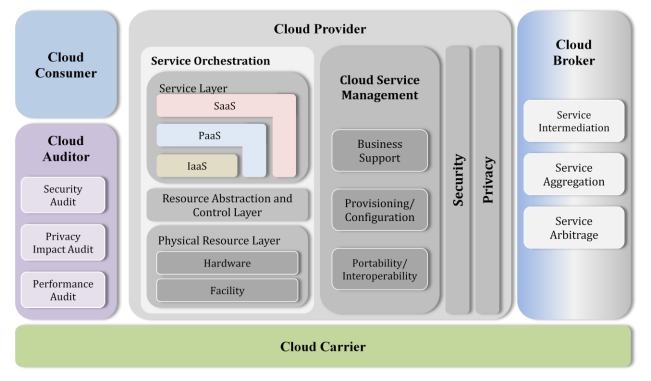
Cloud Provider
This is the person or organization that provides cloud services to interested companies or businesses. A cloud provider handles all cloud-related information, and all responsibility for providing the service lies with the provider. The cloud service provider will be called the primary provider if it provides all services by itself and does not take services from another company.
Cloud Consumer
The consumer is another major player in cloud computing, as it is the consumer who uses the services. The consumer and the cloud computing provider have a direct relationship, since they depend on each other. The consumer goes to the provider to request the services, and this can be a company, a business or any working community. The cloud computing consumer is responsible for paying all fees for the services he or she uses. The consumer then distributes the services to end users, but the main role is that of the cloud computing consumer.
Cloud Auditor
A cloud auditor is a separate entity that inspects all services provided by the cloud provider. A cloud auditor is responsible for providing neutral assessments of cloud services, performance and security. After verifying all cloud security and performance, the auditor has the right to express an opinion. These audits are one of the reasons why cloud providers always try to offer the best services and security to cloud consumers, as any negative opinion from cloud auditors can damage the reputation of the services.
Cloud broker
As we know, cloud computing is a very large system, and sometimes cloud providers are giant enterprises that cloud consumers can’t access directly. To handle such cases, we have intermediaries who open the way to contact a cloud provider and a cloud consumer. An intermediary is actually responsible for managing all operations, security and cloud services, and the broker also negotiates the commercial terms between provider and consumer. Intermediaries have the following main roles:
- Responsible for the provision and enhancement of services by suppliers.
- Plays a role in combining and integrating multiple services.
- Offers services from several providers and guides the best cloud service providers.
Cloud Carrier
As the name suggests, a carrier is one who transports cloud services between providers and consumers. For each contract between provider and consumer, a contract is drawn up, known as a Service Level Agreement. The carrier is the one who provides a guarantee on the agreement. In the event of breach, he faces penalties.
Cloud computing in a nutshell
To sum up, we can say that cloud computing could be a blessing in disguise, and that the correct use of this technology could lead to many system reliefs. Although there is a trend towards cloud computing, many companies have yet to adopt this technology. Like all other technological inventions, cloud computing also presents numerous security threats. The need right now is to work on all these loopholes and make the system safer for users. Once the system is more secure, we’re sure to see a huge flow of traffic heading its way.

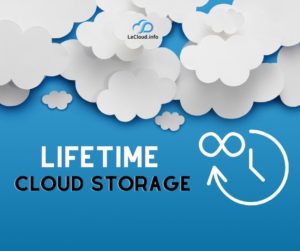
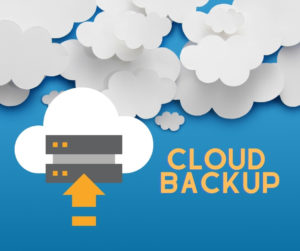
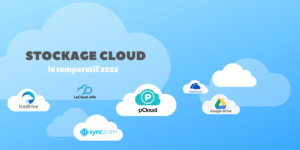
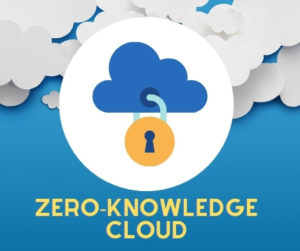
![[Top 2025] The 4 cheapest and most reliable cloud storages starting from 1 TB Comparatif des stockages cloud les moins chers](https://lecloud.info/wp-content/uploads/prices_1-300x300.png)
